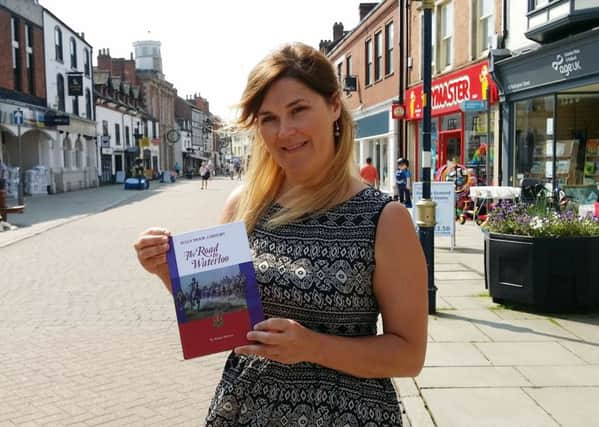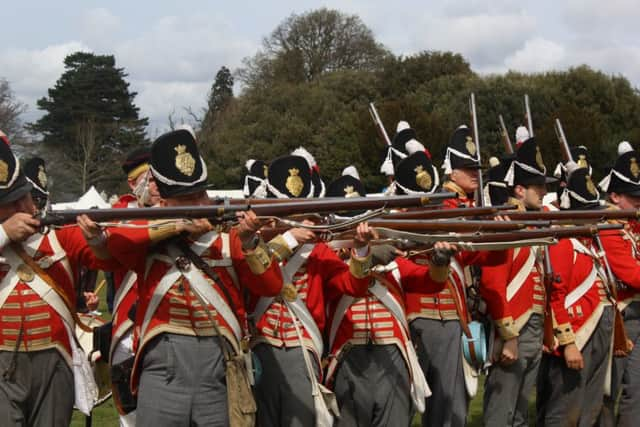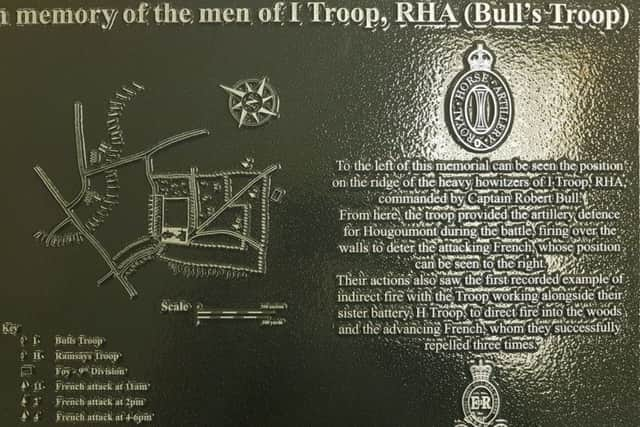Melton historian Penny changes history with new Battle of Waterloo research


The discoveries made by Penny Burton are so important that they have led to a change in the understanding of how the British horse artillery operated in the battle.
Penny carried out painstaking research, poring over army documents which few people have seen during the last two centuries.
Advertisement
Advertisement
And her work was considered so important that earlier this month she was invited to the museum dedicated to the battle to hand over a plaque which she designed to highlight her new research.


Penny told the Melton Times that attending the Waterloo Museum in Belgium for the presentation was an emotional experience for her.
“There was a moment when I got lost in the moment and realised what I had achieved,” she said.
“But it was more important that the men who fought got the recognition they deserve.”
Advertisement
Advertisement
Her research over the last few years has centred mainly on the role of the horse artillery and, in particular, a military unit which still exists today as I Parachute Battery, but what was at the time of the Battle of Waterloo known as Bull’s Troop.


Captain Robert Bull and his men played a vital role in the final defeat of Napoleon, but Penny said he was ‘a quiet leader’ who didn’t widely publicise the achievements of his battery in June 1815.
Her extensive reading of documents such as a Waterloo quartermaster’s field book and other artefacts left to descendants of servicemen helped her piece together a remarkable set of events.
“The more I read about Bull’s Troop, the more I realised how significant they had been in the battle,” she said
“They pushed the French out of the wood three times.
Advertisement
Advertisement
“Had they not done that they would have probably breached the defences at Hougoumont and it might well then have been a very different story.
“One of the things they did was to fire shrapnel over the heads of their own troops and over a farmhouse and this is now believed to be the first ever incidence of indirect fire in a battle.”
She has published a book, entitled ‘Bull’s Troop: A History - The Road to Waterloo’ about the battery’s exploits.
Penny, a former pupil at King Edward VII School in Melton, studied history at Lancaster University before taking a Masters in The Netherlands.
Advertisement
Advertisement
She credits her grandfather with sparking her passion for wanting to find out more about historical events.
Her grandparents were George and Marjorie Burton, who used to keep the Flying Childers, at Burton Lazars.
“My grandad used to tell me stories about his service in Italy with the Sherwood Forresters during World War Two,” she recalled.
“I came home with an Italian boyfriend once and he started conversing with him in his own language, which was a bit of a surprise to us all.”
Advertisement
Advertisement
Penny is currently working on research projects to do with the First World War and is eager to hear from anyone related to servicemen from the conflict.
She also gives lectures and has one planned at the Anne of Cleves pub later this year to talk about food eaten by troops during the Great War.